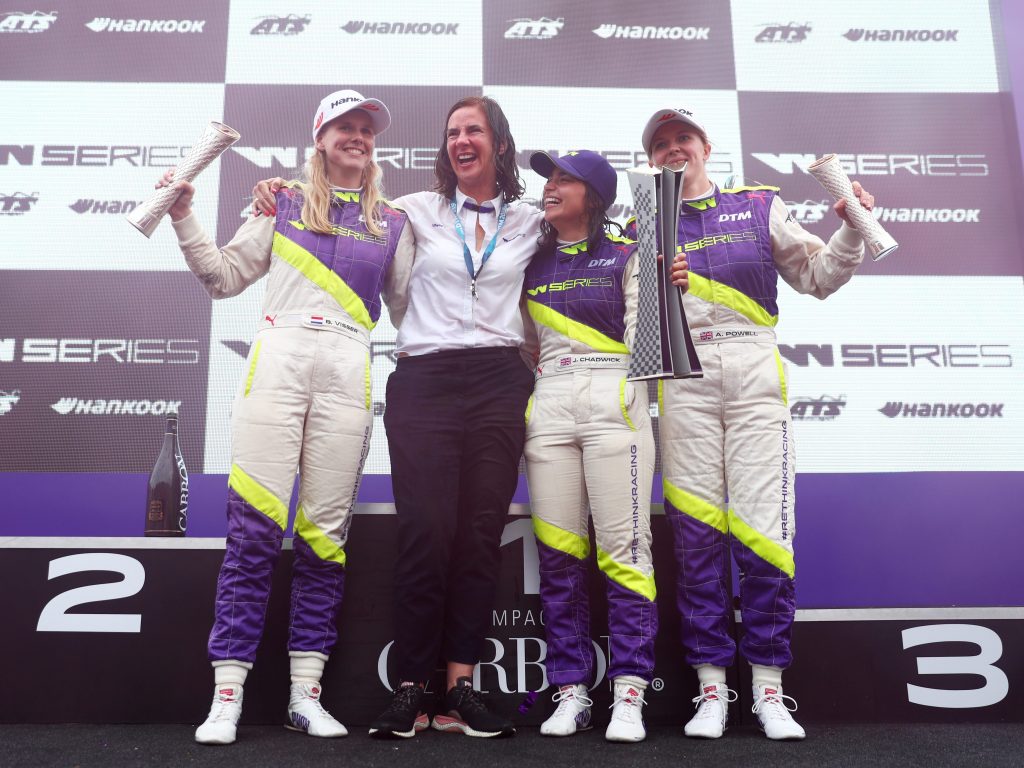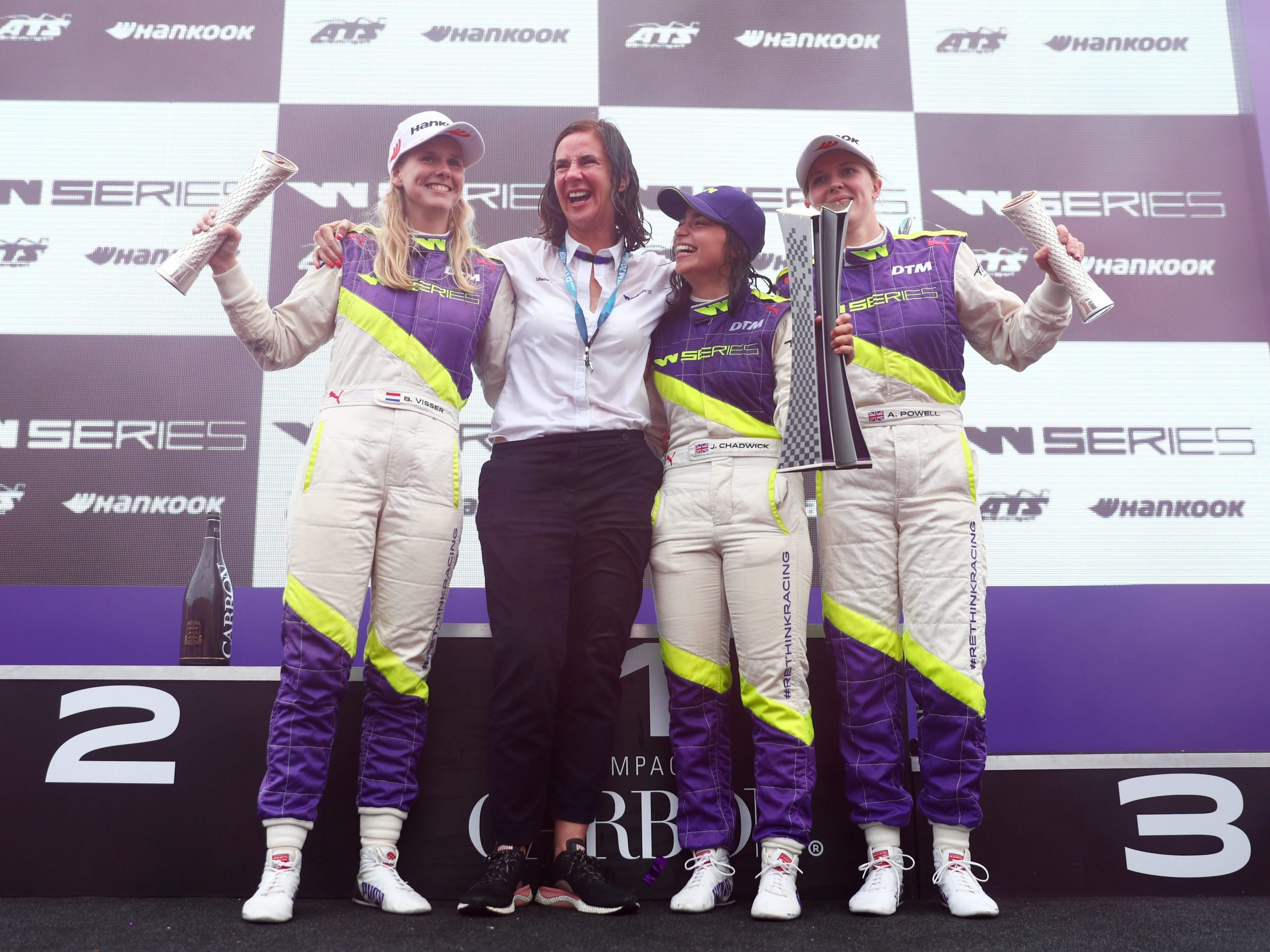
- The world of motorsport has traditionally been utterly dominated by men.
- Catherine Bond Muir, founder of the W Series, a women's only racing championship, wants to change that.
- Bond Muir told Insider that she came up with the idea for the W Series after the birth of her first child.
For almost its entire history, the world of motorsport has been utterly dominated by men. Only five women have ever competed in Formula One, the pinnacle of motor racing, and a cursory glance at the annals of most racing classes shows a real lack of female representation.
Catherine Bond Muir, the CEO and founder of the W Series — an all-female race series started in 2018 — wants to change that.
W Series is coming off its most successful year to date. Following a cancelled season due to the COVID-19 pandemic, the all-women racing series returned to a record viewership as more than half a billion viewers tuned in across the campaign.
The series aims to promote women's place in motorsport and was the brainchild of Bond Muir, a lawyer by trade, who decided to do something new after giving up the law following the birth of her first child.
"I was a massive sports fan whether it was Formula One, cricket, rugby, tennis. I am an avid sports fan and sports watcher," she told Insider.
"I had my first and only child when I was 45 and as a result I just gave up work. After two or three years, the inevitable boredom kicked in and whilst I love [her son] Hamish very very much, I wanted to do something else with my life.
"I was trying to think about what I wanted to do and I was just having a drink with a couple of friends and they said 'what about a women's only motor championship?' Literally the idea started over a drink."
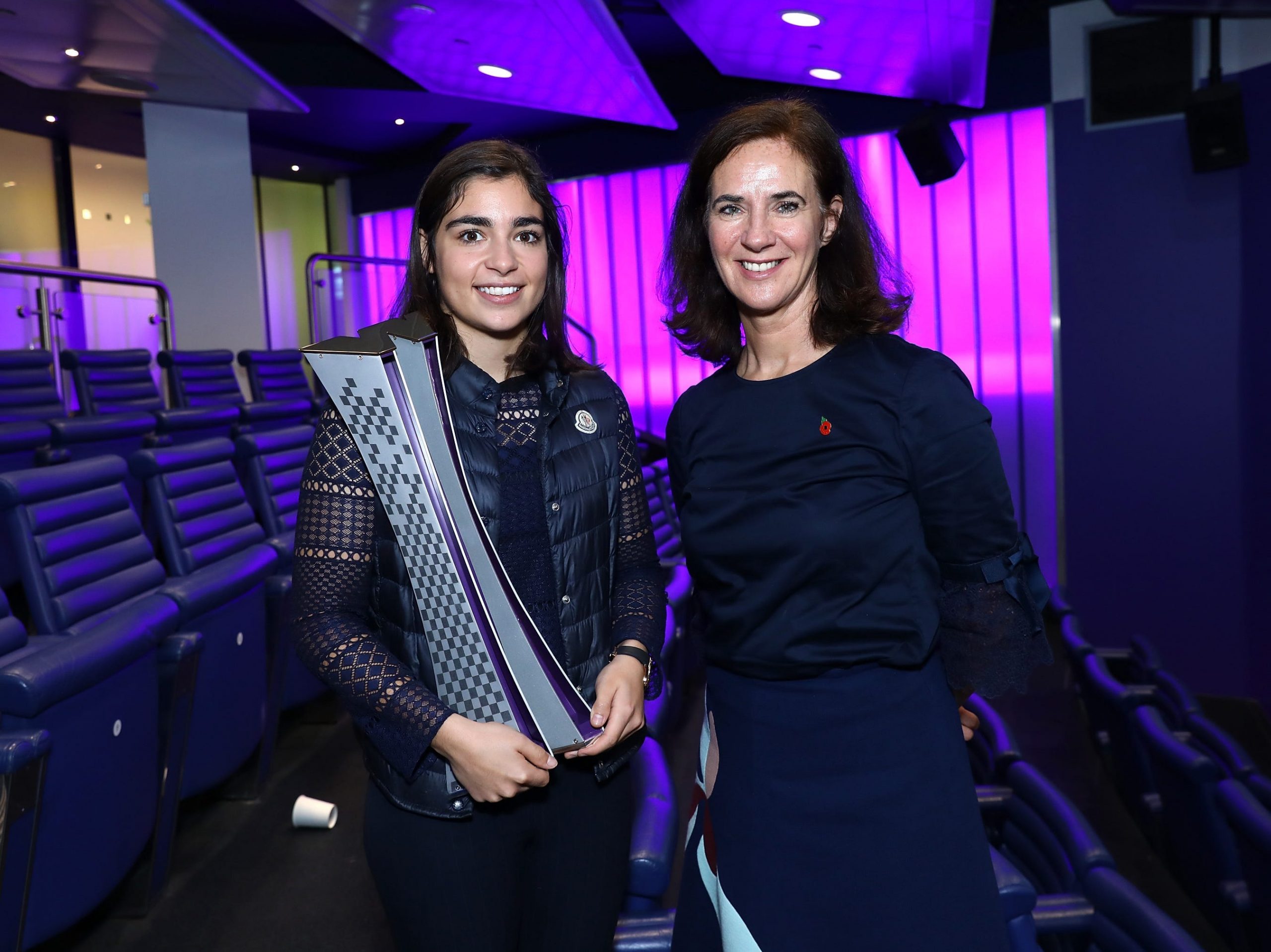
From that drink, the series has evolved into an important piece of the motorsport landscape, and one which not only looks to give the current crop of female drivers a chance, but also aims to inspire the next generation of women's talent.
In deciding whether to try and launch a women's single-seater series, Muir was struck by a worrying trend. In contrast to many other sports worldwide, female participation in motorsport was on the decline.
"I did a lot more research and realized the number of women competing in single seaters had been going down year-on-year over the previous eight years.
"Even at its height, there had never been more than eight or nine women in racing.
Muir believes that this decline was partly down to sponsors specifically targeting young male drivers, hoping that they would be able to make it to Formula One.
With no woman having competed in F1 since 1992, sponsors are reticent to throw money at female drivers, Muir argues.
"I think it was all to do with money. The money that was going into male drivers. The young boys, the karters, if they don't have rich parents they need to raise the money through sponsorship.
"My belief is that every supporter of a young driver wants that driver to be the next Lewis Hamilton and because it's been decades and decades since a woman raced in Formula One, people don't believe that a woman can get into the sport."
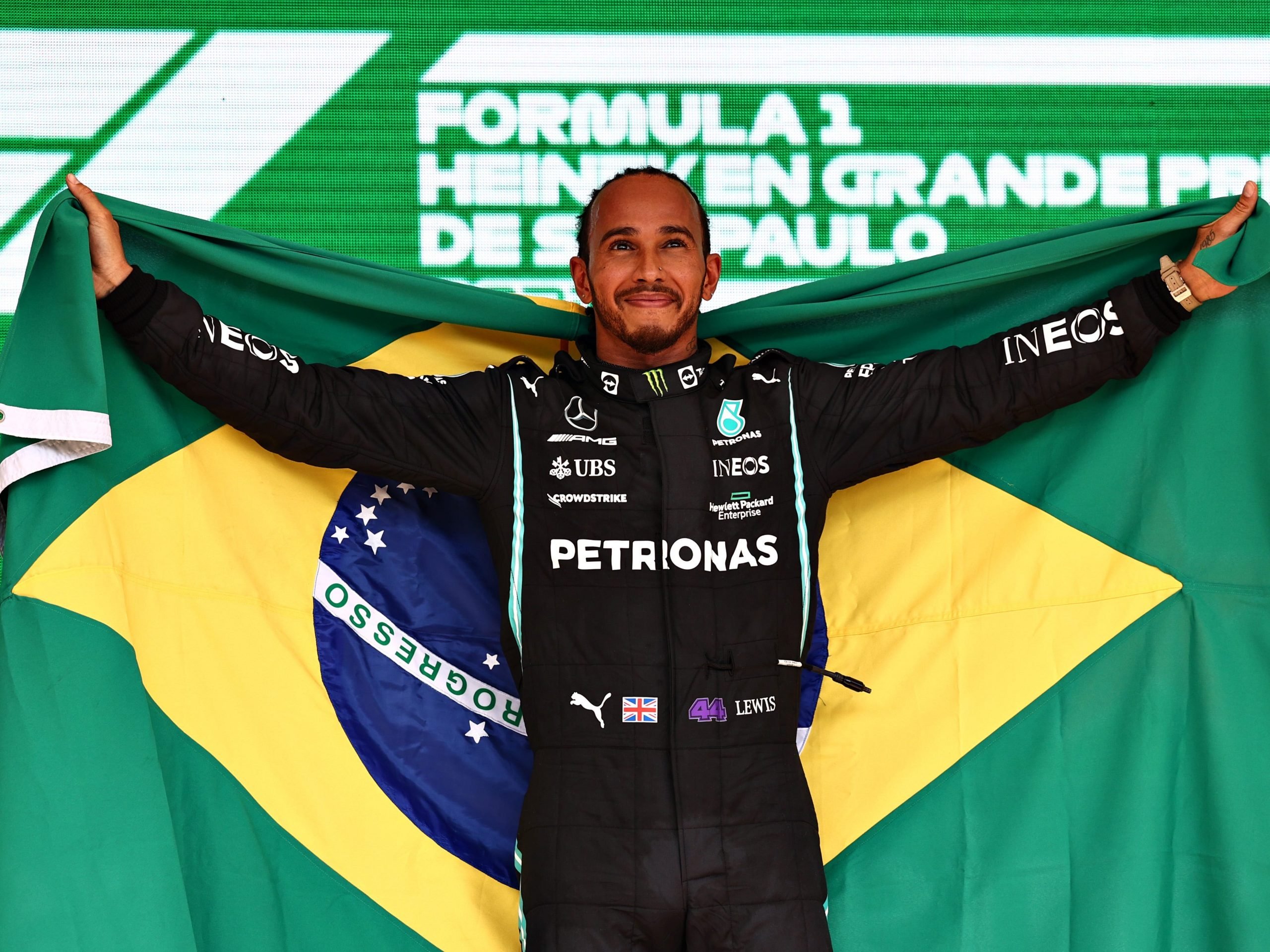
Unlike the "billionaire boys club" of Formula One, and other junior formula series like F2, the W Series covers all the costs for its drivers meaning those not blessed with rich parents or lucrative sponsorships are still able to compete if they are talented enough.
Additionally, every car is the same spec meaning that during race weekends, the 20 drivers lining up on the starting grid battle on a level playing field.
"I would never question what anyone else does. Formula One is over 70 years old, they have their own structures in place that have developed over decades and decades," Muir said.
"What was important for us when trying to figure out the structure of the W Series is that we believed that we needed to identify and promote the fastest female drivers.
"That is all that mattered so we had to take away that financial imperative in order to get the best female drivers.
"It is deep in the DNA of W Series that you don't pay and also as far as possible the cars are identical for exactly the same reason. We're not a technological championship. At our heart, we are about finding the fastest female drivers so we believe those two pillars need to be in place."
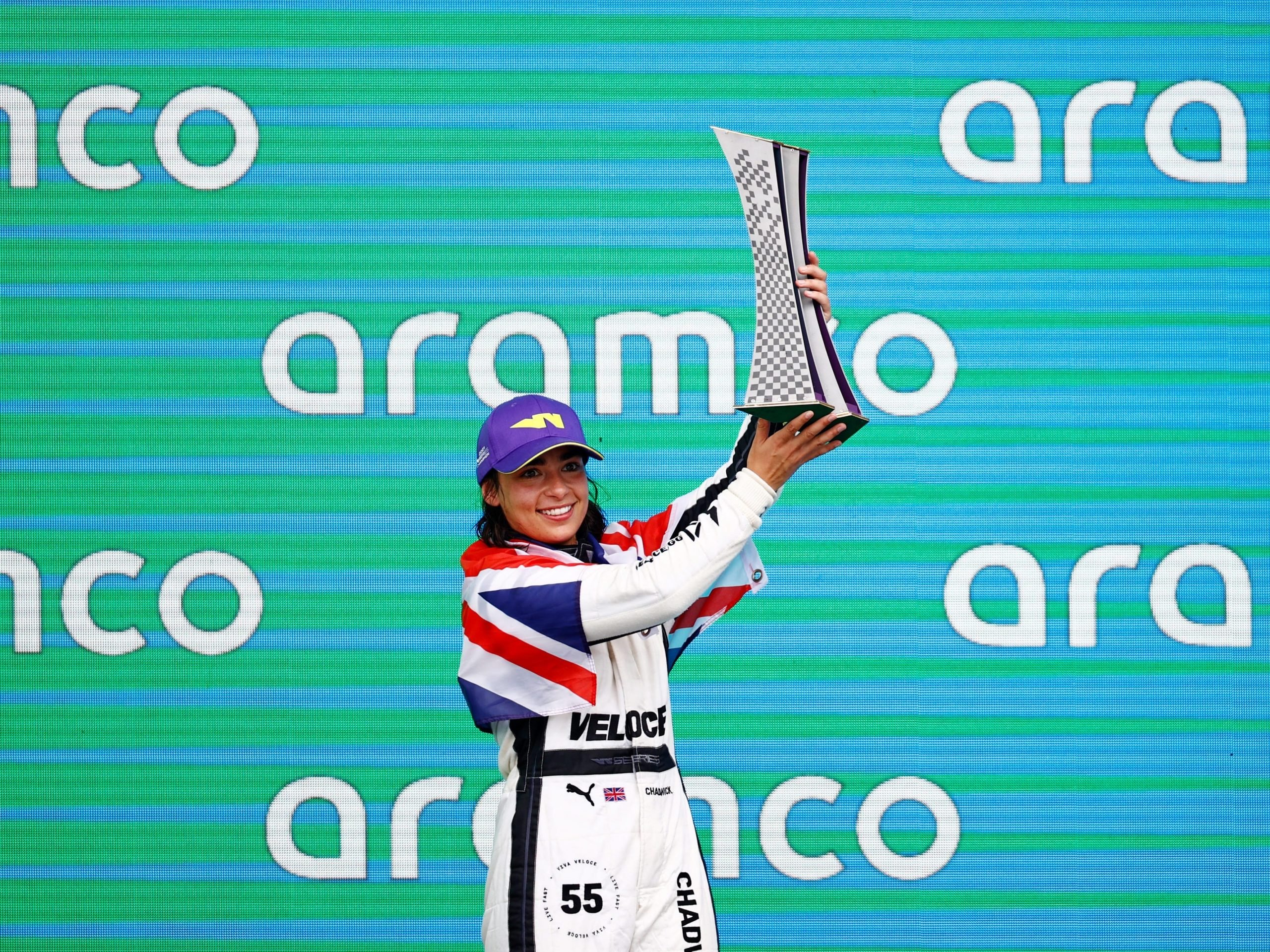
Of the two completed seasons so far, there has been only one champion, Jamie Chadwick.
As a development driver for the Williams F1 team, Briton Chadwick has been touted as female racing's best chance of breaking into the elite world of F1 in recent years.
Muir, however, believes it may be a little longer yet before we see a female F1 driver.
"Jamie has become quite famous. The reason why I know that is because when I meet people socially, they know of the W Series but they're not quite necessarily sure what drivers are called but everyone seems to know Jamie Chadwick.
"Jamie has become increasingly famous so that is fantastic for us. Who knows whether she will race with us next year but what I would love is for her to stay within the W family.
"Someone like Jamie for example, her counterparts are Lando [Norris] and George [Russell] and they've had tens if not hundreds of times more hours in a car than Jamie has because they been racing from an incredibly early age, they've had a huge amount of money put into their careers and they have spent a huge amount of time in a car.
"None of our female drivers have the same amount of time in the car as the most senior men so what needs to happen is when those young girls who are 8, 9, 10, 11 have been testing from a very, very early age I think that is the point we are going to have a fantastic woman.
"Obviously I hope I'm wrong and hope we have one in the next three or four years but I expect it may be a little while longer."
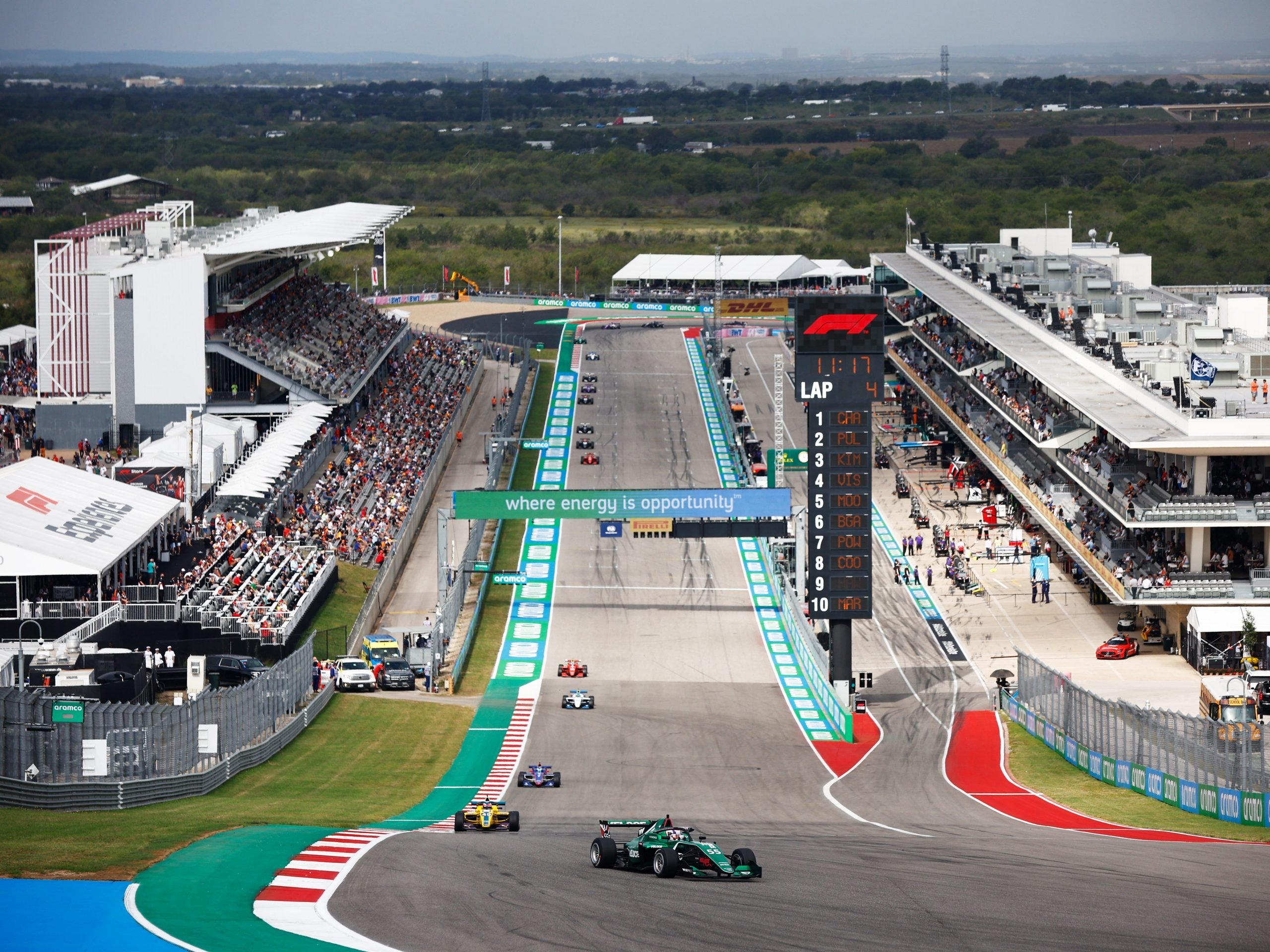
In terms of the W Series' future, Muir says her expectations are surpassed every year.
"When we were planning it, never in my wildest dreams would I have thought we would be racing alongside Formula One, that is an unbelievable feat.
"It's an impossible thing to decide because what I want is for the W Series to become famous across the world and for the W Series to become a truly global championship.
"We need races all over the world but international races and going abroad is very expensive. I'd like everything to happen tomorrow but we've got to grow within our capabilities of growing.
"It is about expanding W Series fame but unquestionably it's also about us being an inspiration to young girls for them to see motorsport as a possibility in whatever capacity."
When asked where she sees the W Series' future in relation to Formula One, Muir said it was not just F1 she was thinking of.
"Some of our drivers have no interest in F1, they want to be Le Mans drivers. If you're a fan of single seaters then [F1] is your nirvana, that is your apex.
"It is to encourage our drivers, to encourage their dreams in whatever aspect of motorsport they want to go into. Clearly if a W Series driver got into Formula One, that would be extraordinary and maybe at that point I will retire, put my feet up and think 'job done.'"
